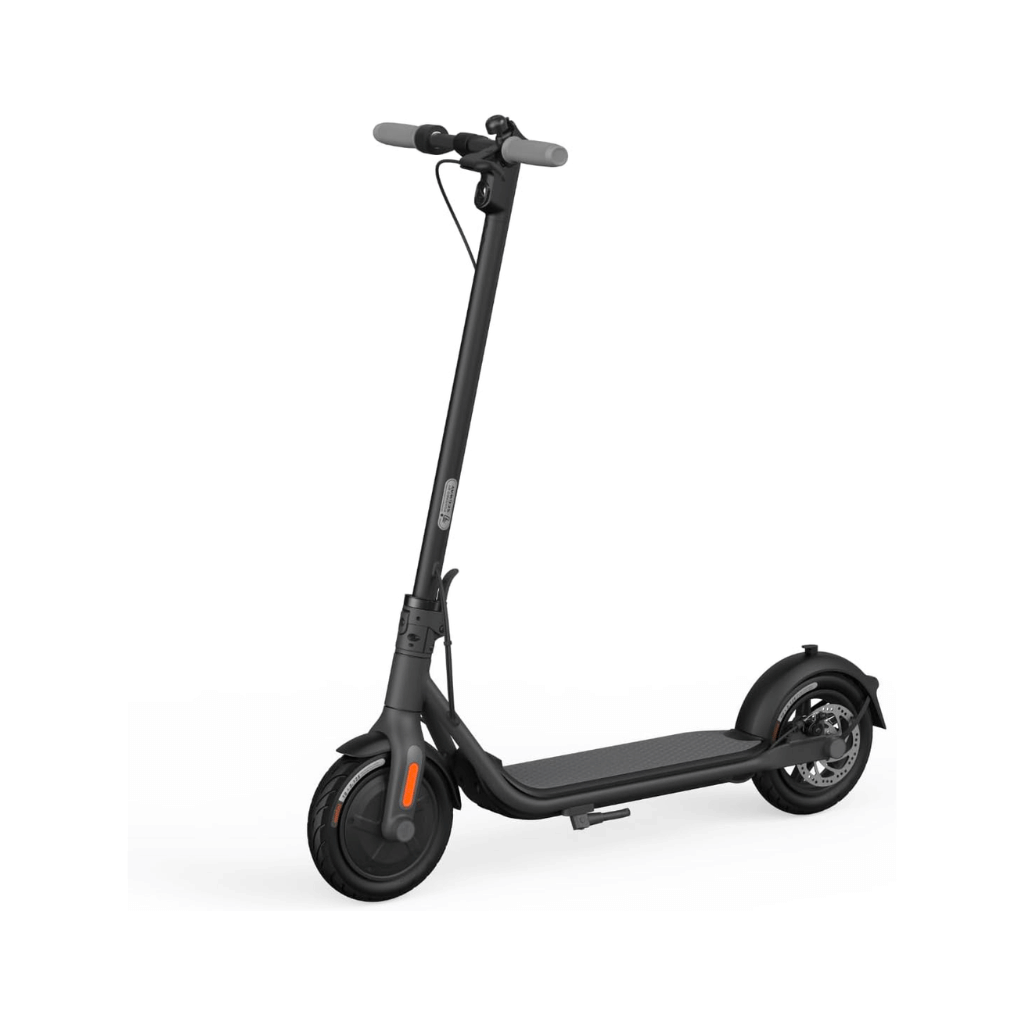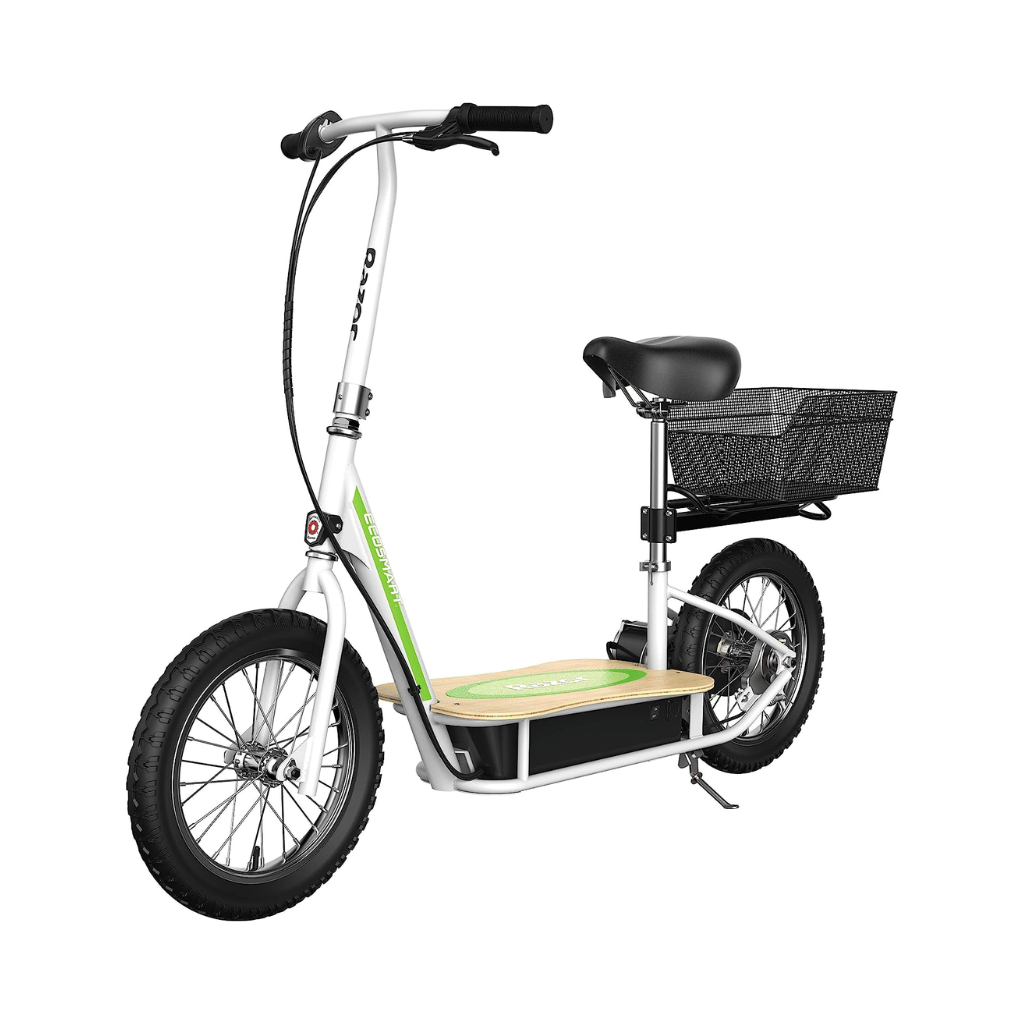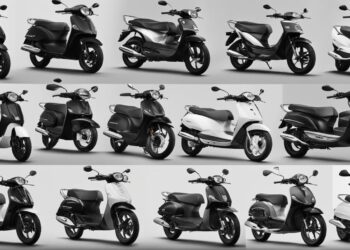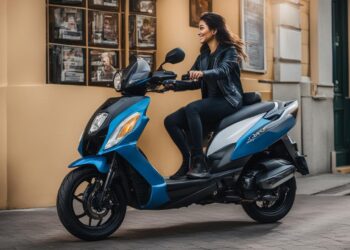Are you considering buying your first scooter? Before making a purchase, there are several important factors to consider to ensure you choose the right scooter that suits your needs and preferences. In this article, we will guide you through the essential things you should know before buying your first scooter.
Table of Contents
- Introduction
- Types of Scooters
- Consider Your Riding Style
- Engine Size and Performance
- Fuel Efficiency
- Size and Weight
- Safety Features
- Maintenance and Repair Costs
- Legal Requirements and Licensing
- Budget Considerations
- Test Ride and Research
- Brand Reputation and Customer Reviews
- Warranty and After-Sales Support
- Accessories and Customization Options
- Conclusion
- FAQs
Introduction
Scooters offer a practical and affordable way to commute short distances, navigate through traffic, and explore your surroundings. Whether you plan to use it for daily commuting or leisurely rides, understanding the key aspects of buying a scooter will help you make an informed decision.
Types of Scooters
Scooters come in various types, each designed for specific purposes. It’s important to understand the different types of scooters available in the market to choose the one that suits your requirements. The most common types of scooters include:
- Commuter Scooters
- Electric Scooters
- Kick Scooters
- Gas Scooters
- Off-Road Scooters
Consider Your Riding Style
Before purchasing a scooter, consider your riding style and intended use. Are you planning to use it for short commutes within the city, or do you need a scooter for longer rides on highways? Understanding your riding needs will help you choose the appropriate scooter type and features.
Engine Size and Performance
For gas-powered scooters, the engine size is a crucial factor to consider. Engine size is usually measured in cubic centimeters (cc). A higher cc generally indicates more power and speed. If you need a scooter for city commuting, a smaller engine size might be sufficient, while larger engine sizes are preferable for longer distances and higher speeds.
Fuel Efficiency
If you opt for a gas-powered scooter, fuel efficiency is an essential consideration. Look for scooters with good fuel economy to save money on fuel costs in the long run. Consider factors such as mileage and fuel tank capacity to determine the scooter’s range and how often you’ll need to refuel.

Size and Weight
The size and weight of the scooter play a crucial role in its maneuverability and storage. Compact and lightweight scooters are easier to handle in crowded urban areas and can be conveniently parked. However, if you require more stability and storage space, a larger and heavier scooter might be suitable.
| Checklist for Buying Your First Scooter |
|---|
| 1. Determine Your Riding Needs |
| – Short commutes or long rides? |
| – City streets or highways? |
| 2. Research Different Scooter Types |
| – Gas-powered scooters |
| – Electric scooters |
| – Kick scooters |
| 3. Consider Engine Size and Performance |
| – Engine size (cc) |
| – Power and speed requirements |
| 4. Evaluate Fuel Efficiency |
| – Mileage |
| – Fuel tank capacity |
| 5. Assess Size and Weight |
| – Maneuverability |
| – Storage space |
| 6. Check Safety Features |
| – ABS |
| – Lights and signals |
| 7. Estimate Maintenance and Repair Costs |
| – Regular servicing |
| – Availability of spare parts |
| 8. Understand Legal Requirements |
| – Minimum age |
| – Licensing regulations |
| 9. Determine Your Budget |
| – Set a budget |
| – Prioritize features |
| 10. Test Ride and Research |
| – Test different models |
| – Read customer reviews |
| 11. Consider Brand Reputation |
| – Established brands |
| – Reliability and support |
| 12. Check Warranty and After-Sales Support |
| – Warranty duration |
| – Access to assistance and parts |
| 13. Explore Accessories and Customization |
| – Storage compartments |
| – Personalization options |
| 14. Verify Safety Gear Availability |
| – Helmets |
| – Knee pads, elbow pads, etc. |
Safety Features
Safety should be a top priority when choosing a scooter. Look for features such as anti-lock braking systems (ABS), sturdy tires, headlights, taillights, and turn signals. Additionally, wearing appropriate safety gear, such as a helmet, knee pads, and elbow pads, is essential to ensure your safety while riding.
Maintenance and Repair Costs
Consider the maintenance and repair costs associated with the scooter you intend to purchase. Some scooters may require regular servicing, while others have longer service intervals. It’s important to factor in these costs and ensure that you can access reliable maintenance services in your area.
Legal Requirements and Licensing
Before buying a scooter, familiarize yourself with the legal requirements and licensing regulations in your area. Some regions have specific laws regarding minimum age, license requirements, and scooter specifications. Ensure that you meet all the legal prerequisites before hitting the road.
Budget Considerations
Set a budget for your scooter purchase and stick to it. Scooter prices can vary significantly based on brand, type, engine size, and features. Consider your budget constraints and prioritize the features that are most important to you.

Test Ride and Research
Before making a final decision, it’s advisable to test ride different scooter models. This will give you a firsthand experience of the scooter’s comfort, handling, and performance. Additionally, conduct thorough research online, read customer reviews, and compare different models to gather more information.
Brand Reputation and Customer Reviews
Consider the reputation of the scooter brand you are interested in. Established and reputable brands often offer better quality, reliability, and after-sales support. Reading customer reviews and testimonials can provide insights into the experiences of other scooter owners.
Warranty and After-Sales Support
Check the warranty and after-sales support provided by the scooter manufacturer. A reliable warranty ensures that you are protected against any manufacturing defects or malfunctions. Additionally, good after-sales support guarantees that you can access assistance and spare parts if needed.
Accessories and Customization Options
Explore the availability of accessories and customization options for the scooter you choose. Accessories such as storage compartments, phone holders, and windshields can enhance your riding experience. Customization options allow you to personalize your scooter to reflect your style and preferences.
Conclusion
Buying your first scooter is an exciting decision that can enhance your mobility and provide a fun way to get around. By considering factors such as scooter type, riding style, engine size, safety features, and budget, you can make an informed choice that suits your needs. Remember to prioritize safety, conduct research, and test ride before making your final decision.
FAQs
1. Is it necessary to have a license to ride a scooter?
Yes, in most regions, a valid driver’s license or a specific scooter license is required to legally ride a scooter on public roads. Check the local laws and regulations in your area for specific requirements.
2. Are electric scooters better than gas-powered scooters?
Electric scooters are more environmentally friendly and require less maintenance compared to gas-powered scooters. However, gas-powered scooters generally offer higher speed and longer ranges.
3. How often do I need to service my scooter?
The service intervals for scooters can vary depending on the model and manufacturer. It is recommended to follow the service schedule provided by the manufacturer to ensure the scooter’s optimal performance and longevity.
4. Can I modify my scooter with aftermarket accessories?
Yes, many scooters offer aftermarket accessories and customization options. However, it’s essential to ensure that any modifications comply with local regulations and do not compromise the safety and performance of the scooter.
5. What is the average lifespan of a scooter?
The lifespan of a scooter can vary depending on factors such as maintenance, usage, and quality. With proper care and regular maintenance, a scooter can last for several years.


















